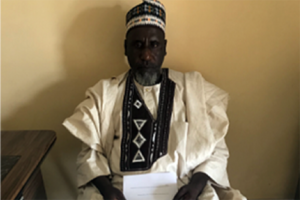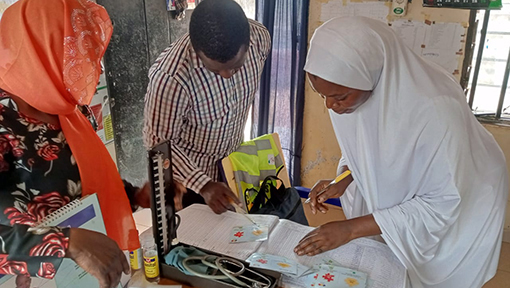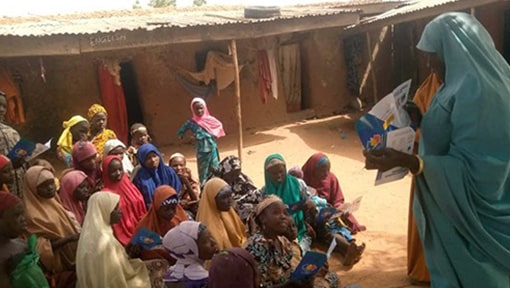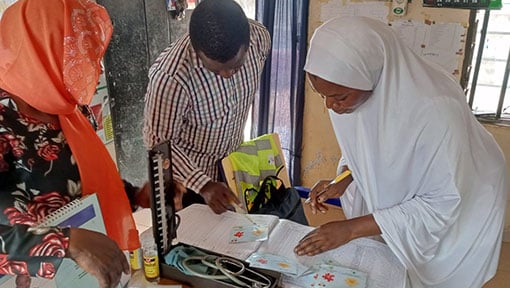Driving Sustainability by Changing Religious Leaders’ Mindsets in Bauchi State, Nigeria
by Beeve Hua | Oct. 29, 2018
Mallam Suleiman Usman, a Muslim leader in Bauchi state.
The ability to identify key influencers and engage them to participate in The Challenge Initiative’s proven interventions is important for ensuring the long-term sustainability of the approaches as well as their outcomes. The Initiative has successfully engaged not only government and health officials, but also influential community and religious leaders to ensure they “buy in” to its “business unusual” approach and create an enabling environment that supports the uptake of modern contraceptive services.
A Muslim religious leader in Bauchi state, Nigeria, Mallam Suleiman Usman, recently shared his experience working with the Initiative.
“Prior to the advent of TCI, child birth spacing (CBS) was a very sensitive and delicate issue to discuss. I can remember even the health workers having issues discussing CBS with women of reproductive age because of the kind of religious interpretation that was given to it. There were misconceptions on the part of the Islamic clerics,” Usman said. “They normally interpret CBS as controlling population. But, after our interaction with them using the Islamic Perspective and Sermon notes on child birth spacing [provided by TCI], a lot of them have now understood that spacing in between births benefits the health and well-being of the mother and child and is also promoted in the Holy Qur’an.”
Usman noted that he has been promoting child birth spacing among his fellow Mallams and preaching about it to his followers.
“Now we are using every opportunity to educate more religious leaders on correct messaging of CBS based on the Islamic perspective,” he said. “There is a wave of attitudinal change among the Islamic religious leaders. Some have gone a step further to get more knowledge on what the holy book says about CBS. Those Mallams who were against child birth spacing are now champions because the facts from the Holy Qura’n are very glaring … It is now almost freely discussed in the mosques, at learning centers and other gatherings.”
Although the Initiative is focused on only certain local government areas (LGAs) within Bauchi. Usman sees the value in its approach for engaging and educating the religious community and would like to see it scaled up. He said he would recommend scaling up this approach to Bauchi’s remaining 15 LGAs by either the state or the Initiative.
The Initiative believes when demand for family planning comes for local community influencers, such as religious leaders, it is more likely to create positive social normative change that is sustained over time.






